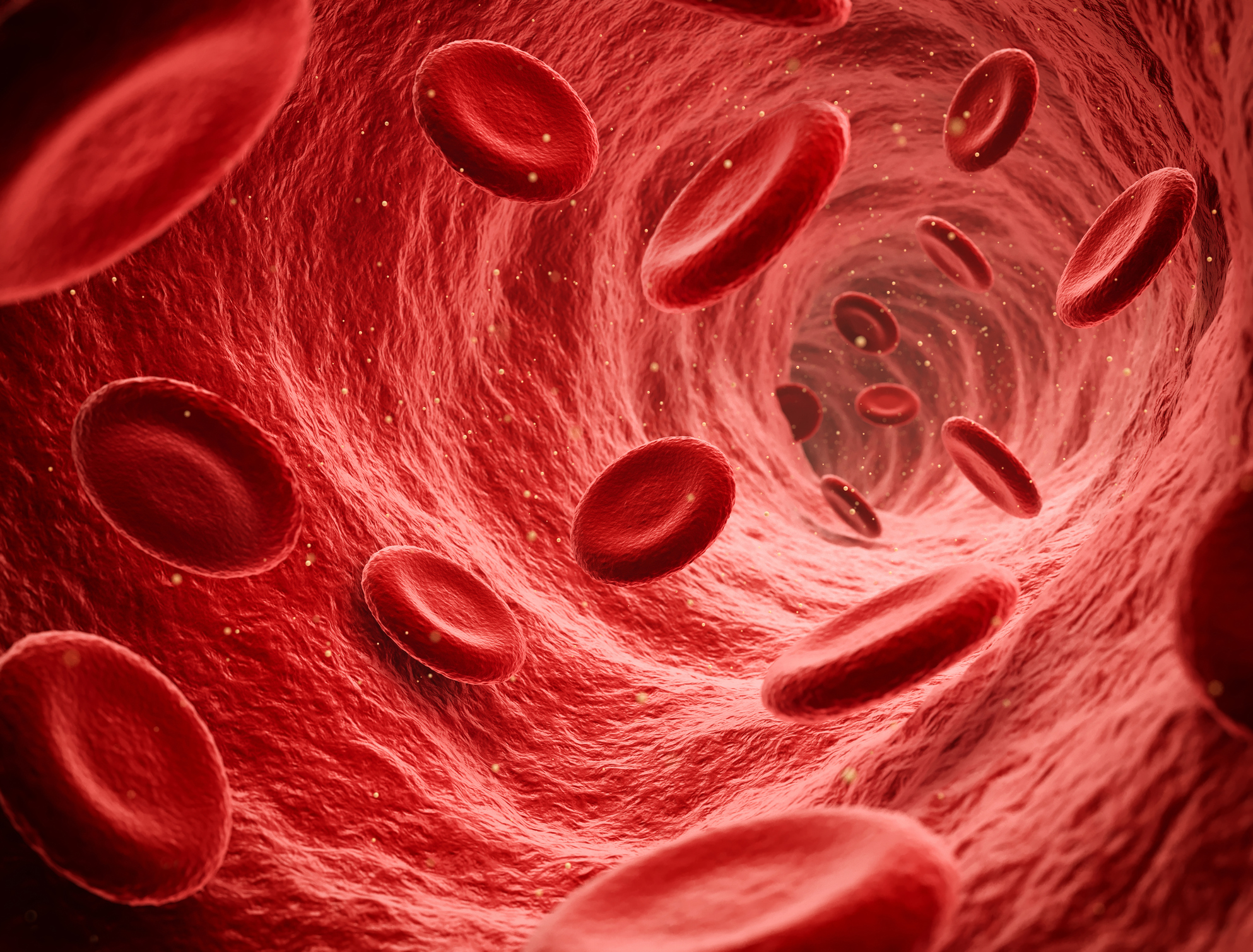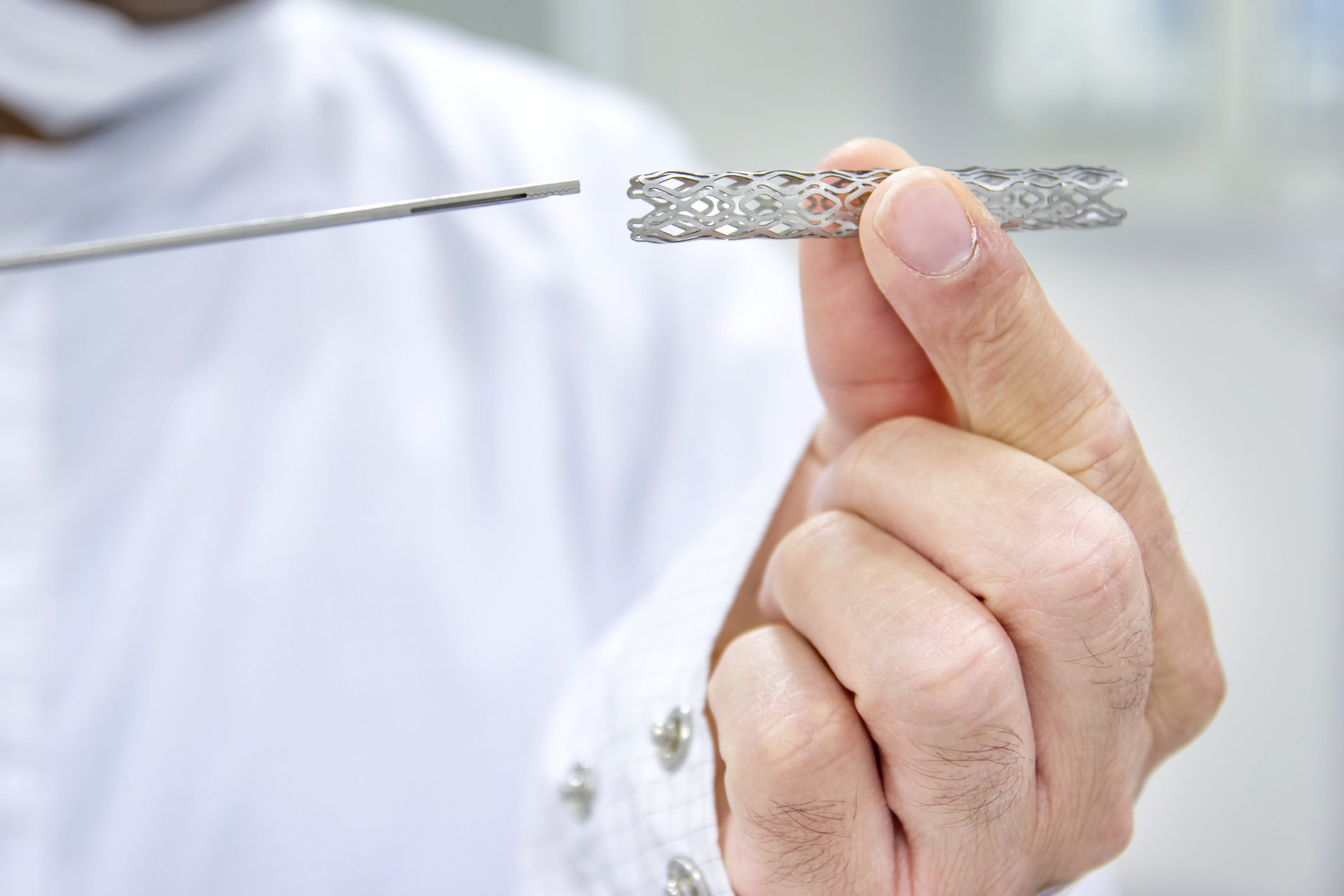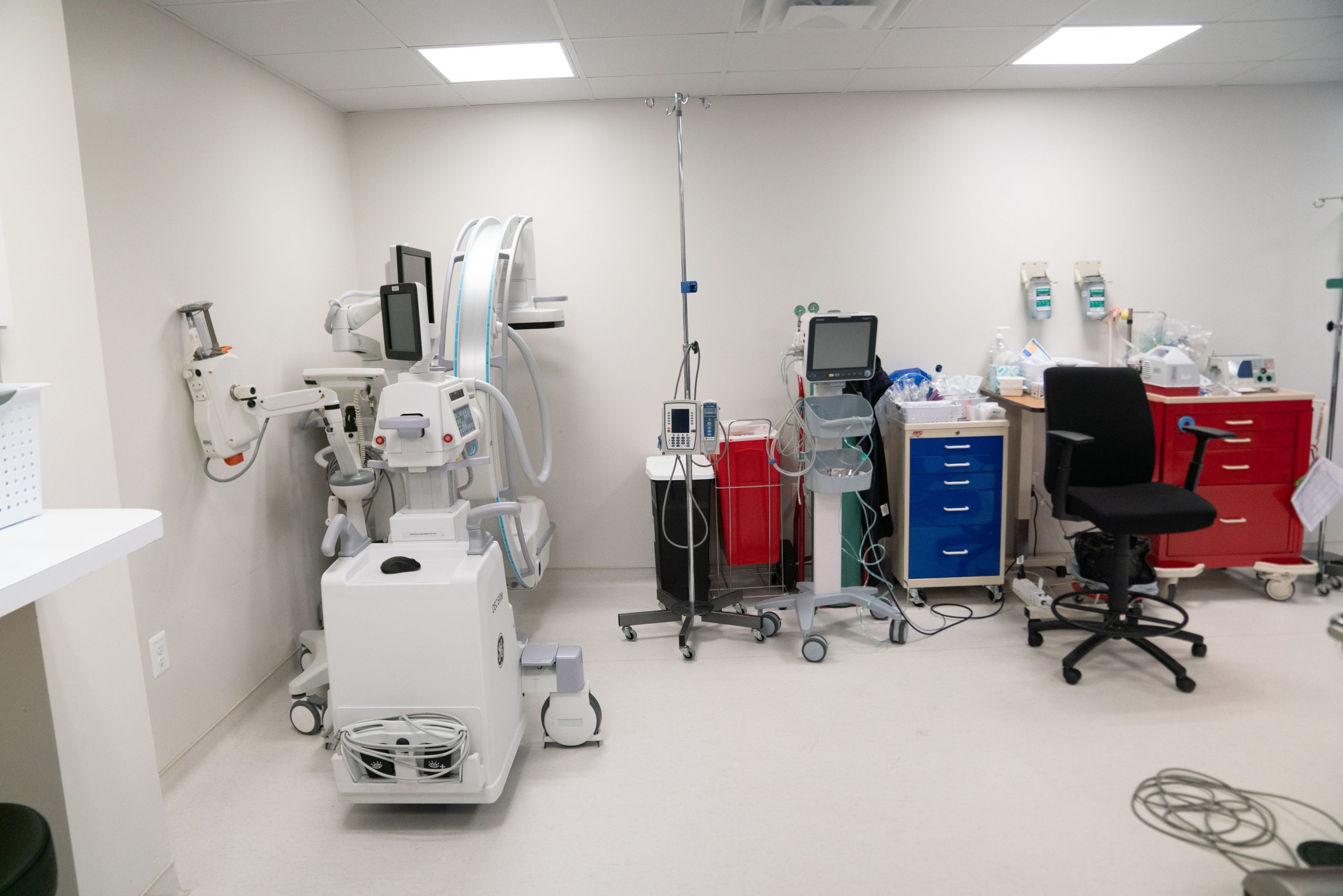Vascular surgery refers to a group of different procedures to treat vascular disease. Surgeons can perform vascular surgery on the aorta, the main artery that carries blood away from the heart. Surgery also targets the veins and arteries in the arms, legs, pelvis, abdomen, and neck (excluding those in the brain and heart).
Vascular surgery involves both endovascular therapy/surgery and open vascular surgery and may be necessary to treat thrombosis, aneurysms, varicose veins and other vascular diseases.
While treatment for vascular disease varies depending on the severity and type, it is known to treat a wide range of blood flow issues.
Here at Premier Vascular Center of Maryland, our Board Certified physician cares for a broad spectrum of vascular conditions, ranging from the most complex to the most common.
Your Top Source for Minimally Invasive Surgery in Baltimore
In harnessing the latest minimally invasive technologies, our vascular surgeon, Dr. Mouhamad Annous, is committed to helping reduce post-surgical scarring, recovery time, and discomfort.
We pride ourselves on building strong patient-provider relationships and offer same-day vascular testing. We have a single vascular surgeon who serves patients throughout the treatment process, from the initial consultation and explaining vascular testing results, to performing necessary procedures and postoperative follow up.
Our anesthesia provider performs all pain monitoring and control prior to the procedure, during the vascular procedure, and post-operatively, rather than a nurse or nurse anesthesiologist.
The medical team at Premier Vascular Venter of Maryland provides vascular surgery for many patients, including the following:
- Hemodialysis patients: We maintain patients’ graft or fistula patency with procedures such as fistulogram, angioplasty, stenting and de-clot of the fistula, as well as insertion, exchange and removal of Hickman catheters.
- Peripheral vascular disease patients: We ensure patients’ peripheral arteries are unobstructed through procedures such as angiogram, angioplasty, atherectomy, and stenting. We also place venous filters for Deep Vein Thrombosis and perform carotid angiograms to check for obstructions or stenosis within the carotid arteries.
What Is Vascular Disease?
Vascular Disease refers to any abnormal condition of the veins or arteries. The body uses blood vessels to circulate blood, and any problems that occur along this network can lead to death or severe disability.
What Is Vascular Surgery?
Vascular surgery refers to a group of different procedures to treat vascular disease. Surgeons can perform vascular surgery on the aorta, the main artery that carries blood away from the heart. Surgery also targets the veins and arteries in the arms, legs, pelvis, abdomen and neck, excluding those in the brain and heart.
Why Is Vascular Surgery Performed?
You may need vascular surgery if your condition cannot be treated with lifestyle changes or medication. A vascular surgeon may recommend implementing some lifestyle modifications, such as controlling diabetes or quitting smoking, if the condition is in the early stages.
Conditions in which vascular surgery may be needed include:
- Aneurysm.
- Blood clots.
- Vein disease.
- Carotid artery disease.
- Peripheral artery disease.
- Renal artery occlusive disease.
- Trauma including procedures to repair blood vessel damage and stop internal bleeding.
Vascular Surgery at Premier Vascular Center of Maryland
Dr. Annous performs a wide variety of vascular procedures, including minimally invasive vein surgery for venous insufficiency. We are also one of the few centers in the area to conduct thoracic outlet syndrome surgery. Our medical team can carry out several venous and arterial procedures, including surgeries such as the following:
Abdominal Angiogram
An abdominal angiogram is a test that examines the blood vessels in your abdomen and chest using X-rays. The procedure may be used to check blood flow to the spleen, liver and other organs in the abdomen. A vascular surgeon may also use an abdominal angiogram to treat cancer or bleeding in the abdomen.
The surgeon places a catheter into a large artery in your groin and then moves it into the specific artery of interest. The physician will then take a series of X-ray images to see the blood flow in the abdomen.
Carotid Angiogram
A carotid angiogram is a study of the large blood vessels in your neck, also known as your carotid arteries. These arteries transport oxygen-rich blood from your heart to your brain.
A carotid angiogram may eliminate the need for more invasive carotid stenosis surgery and helps detect problems with the blood vessels such as clots, tumors, arterial stenosis from plaque build-up, arteriovenous malformation (AVM), and aneurysms.

IVC Filter for DVT
A surgeon places an Inferior Vena Cava (IVC) filter in the Inferior Vena Cava vein during endovascular surgery to prevent blood clots from traveling from the lower extremities to the lungs, which can become fatal.
At Premier Vascular Center of Maryland, our doctor inserts this device to treat deep vein thrombosis (DVT), or a blood clot that forms in a vein deep inside the body.
Renal Artery Angioplasty and Stenting
Renal artery angioplasty is a procedure to open the large blood vessels that carry blood to the kidneys, also known as the renal arteries. This is done by placing a balloon into the renal artery and then inflating the balloon to increase blood flow by widening the artery.
Renal artery stenting is a procedure to ensure the large blood vessels that carry blood to the kidneys, also known as the renal arteries remain open. This is usually done in addition to renal artery angioplasty. Stenting restores normal blood flow by opening the blockage.
Abdominal Endograft for AAA
An abdominal aortic aneurysm (AAA) is a dilation in the wall of a blood vessel, usually an artery, that is due to weakness or degeneration that develops in a portion of the artery wall. An endograft is a fabric-covered, hollow tube surrounding a mesh metal stent that reinforce the endograft. The surgeon uses endografts to treat abdominal aortic aneurysm (AAA) or swelling in the aorta because of their ability to support the weakened artery.
The team at Premier Vascular Center of Maryland performs Abdominal Aortic Aneurysm endograft repair surgery outside our main facility. This procedure may be performed surgically through an open incision or in a minimally-invasive procedure called endovascular aneurysm repair (EVAR).
Fistulogram
A fistulogram is a special X-ray procedure. It uses contrast (X-ray dye) to look at the blood flow in your fistula or graft (hemodialysis access). This procedure can check to see if there is any blockages or narrowing (stenosis) within the fistula.
A fistulogram ensures a healthy hemodialysis access. It is very important to detect any issues with your fistula early so that you may receive adequate hemodialysis.
Thrombectomy
A de-clot of arteriovenous (AV) fistula, or thrombectomy, is a procedure that removes a blood clots, also called a thrombosis, from a fistula.
It is imperative that patient’s have a functioning fistula in order to receive life saving hemodialysis.
Hemodialysis Catheter
Hemodialysis treatment may be used when your kidneys fail and can no longer remove extra fluid from your body or clean your blood. A vascular access or hemodialysis access is a way to reach your blood for hemodialysis. Your access can be an AV fistula or an AV graft that is place in either upper limb or groin. Your access can also be a catheter (a soft tube) that is placed in a large vein, usually in the neck.
At Premier Vascular Center of Maryland, we perform vascular access surgery by inserting, exchanging or removing a catheter as a hemodialysis access.
Intravascular Venous Stent
Surgeons place stents into the veins for structural support, which requires different forms of advanced imaging, including intravascular ultrasound (IVUS).
At Premier Vascular Center of Maryland, we treat chronic venous obstruction with intravascular venous stenting.
AV Fistula Creation
The vascular specialists at Premier Vascular Center of Maryland create AV fistulas — surgical connections between a vein and an artery — outside of our main facility. This will be done at a local area hospital, normally as an outpatient procedure.
Fistulas are generally used for dialysis in patients with severe kidney disease.
Artery Bypass and Carotid Endarterectomy
In an arterial bypass graft surgery, a surgeon bypasses damaged arteries using either blood vessels taken from another area in your body or a graft. This procedure helps improve blood flow throughout the arterial system.
Surgeons use a carotid endarterectomy to treat carotid artery disease, which is when deposits build up in the blood vessels on each side of your neck. An endarterectomy removes these deposits.
Our surgeon performs both arterial bypass surgery and carotid endarterectomy outside our main facility at Premier Vascular Center of Maryland.
What to Expect From Vascular Surgery at Premier Vascular Center of Maryland
When you come in for vascular surgery at Premier Vascular Center of Maryland, you can expect:
- An initial consultation with Dr. Mouhamad Annous to determine if you need to have a vascular intervention.
- Dr. Mouhamad Annous will explain the proposed vascular intervention and answer any questions you may have.
- After you consent to the recommended vascular intervention, our front desk receptionist will schedule your vascular surgery.
- You must not eat or drink anything on your surgery date or after midnight the evening before.
- On your surgery date, our nursing staff will welcome you and bring you back for your preoperative examination and evaluation.
- Dr. Mouhamad Annous will meet with you a second time to get your consent and explain the procedure.
- Our anesthesia provider Christopher Cox, CRNA will also meet with you to explain his role in the surgery and obtain your consent for anesthesia.
- You will then be brought back into the operating room for your procedure.
- After your procedure, you will be brought into the recovery room and monitored closely.
- We will give you discharge instructions once you’ve recovered.
- We’ll schedule your postoperative appointment or further vascular intervention if needed.
- The next day, one of our nurses will call you to ensure that you’re recovering optimally.
When Should I Call My Doctor After My Vascular Surgery?
After undergoing vascular surgery, contact your doctor if:
- You experience fever or chills.
- You experience increased pain.
- You notice drainage or bleeding from your incision site.

Book an Appointment With Premier Vascular Center of Maryland Today
At Premier Vascular Center of Maryland, our Board Certified vascular surgeon specializes in treating people with a wide range of vascular conditions.
For more information about our laboratory or the types of vascular services we offer, please reach out today.




